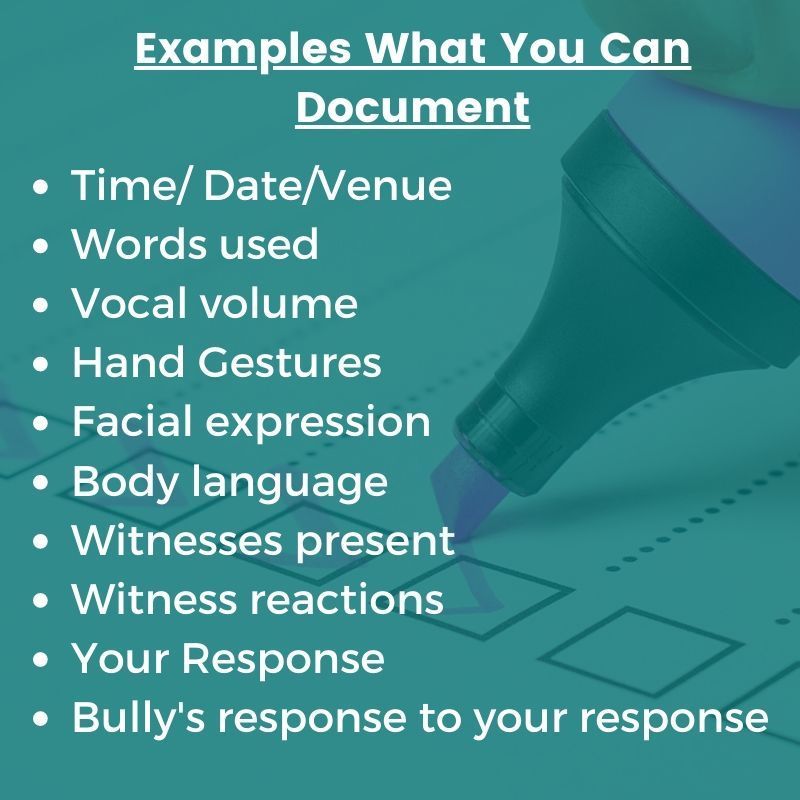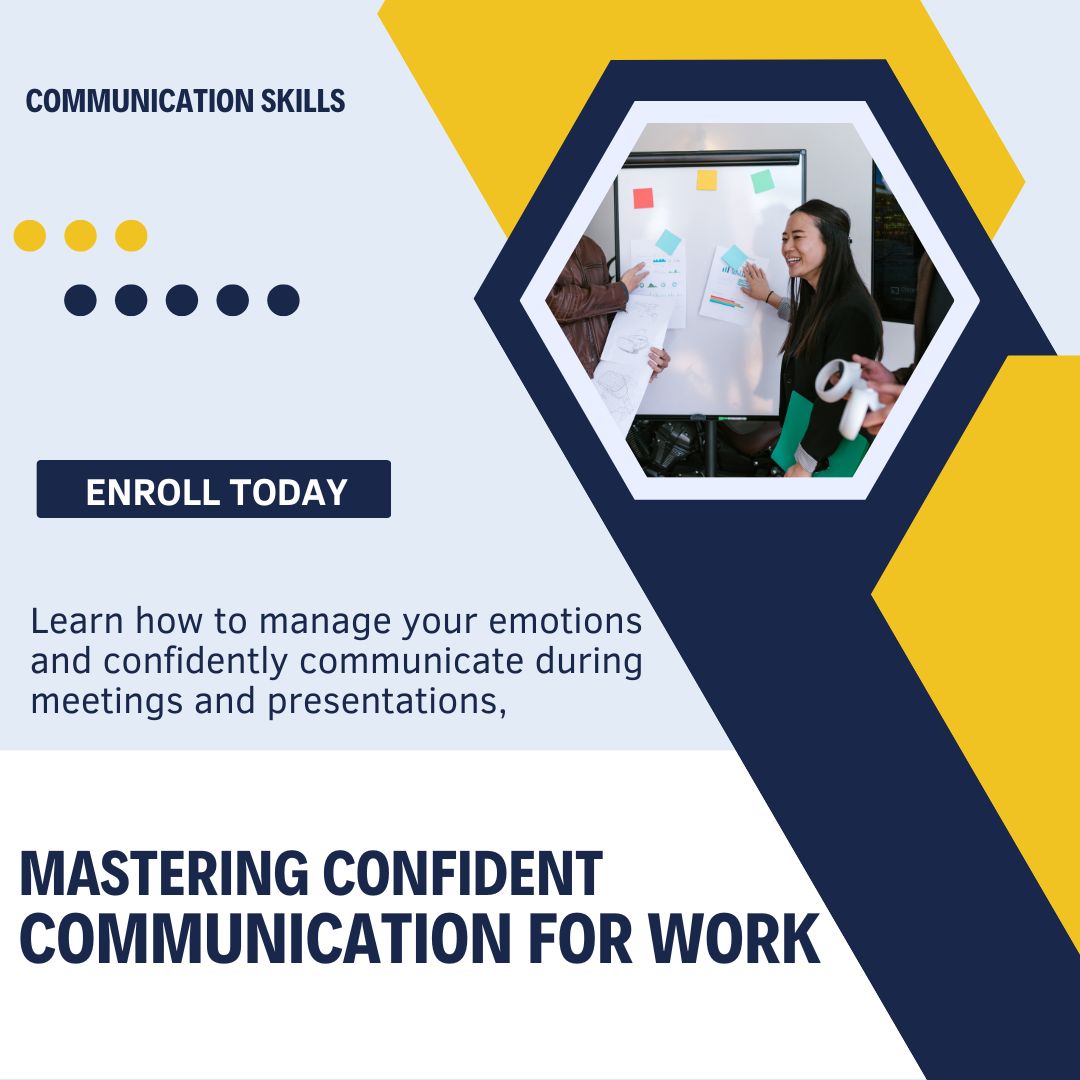How can you deal with bullying at work?
Is there any way you can confront a bully and win? It would be great to have a blueprint to follow that guarantees a high success rate, but that is not the reality. This article suggests a few things to do to improve your chances of challenging a bully and winning. It would be a great idea if all organizations could offer similar training to their workforce because of its prevalence at work but that is not the case either..
According to Dr. Judy Blando, in her doctoral research dissertation on Aggressive Behavior: Workplace Bullying and Its Effect on Job Satisfaction and Productivity, she determined that 75% of employees surveyed had been affected by workplace bullying, whether as a target or a witness.
Wouldn't it be a great idea if business owners and organizations become proactive and not reactive in addressing problems such as bullying by empowering their workforce to deal with such situations? While that is a great dream, it is not the reality today. Therefore, as an employee, it is on you to learn how to deal with bullying at work.
Who is a bully?
If you always feel dreadful at the thought of a coworker or you have a colleague who yells at you, then you may be dealing with a bully. If your coworker or boss puts you or your work down continuously, then you may that person may be a bully. When a peer or boss takes credit for what you do and never allows anyone else to see the value of what you do, that person is a bully.
There is a difference between constructive criticism and bullying. You must also differentiate between an extrovert and a bully. The best way to understand the differences is to know the definition of a bully. To define bullying in the workplace is not very straightforward because of the complexities involved.
Society For Human Resource Management defines bullying as unwelcome behavior that occurs over a period of time and is meant to harm someone who feels powerless to respond. In most cases, bullies have a few characteristic in common.
The characteristics of bullying at work include (from Wikipedia) :
• Repetition (occurs regularly)
• Duration (is enduring)
• Escalation (increasing aggression)
• Power disparity (the target lacks the power to successfully defend themself)
• Attributed intent
Why you are a target of bullying
If you are a target of bullying, you may be wondering, " why me?" It's because you make the bully feel insecure or threatened. It's often a sign of insecurity on the part of the bully. Your skill, personality, experience, or likability feels threatening to a bully. So they want to do everything to make you feel smaller or less skilled than them. In some cases, the bully may be acting out of prejudice. They dislike what you believe in or who you are. Another interesting note is that bullying cuts across all professions and social status.
How to deal with bullying at work
Bullying in the workplace is a common occurrence, and anyone can be a victim. There are usually two responses, flight or fight.
The flight response often involves ignoring the behavior or the person. The flight response is a popular option for victims, but it doesn't make the problem go away. Flight response never addresses the perpetrator nor deal with the problem.
The Fight response may be the most effective way of challenging a bully. The fight response, however, must be done strategically for it to have the desired effect. So here is a plan of how you can plan to fight a bully.
1. Be Confident
The ultimate goal of a bully is to diminish your self worth and confidence. The less confident you are, the more power a bully has over you. If you are insecure as a professional, you would not recognize bullying on time. You would think you are not doing a good job. On the contrary, when you are confident, you would be quick to spot a bully and to plan how to stop the bully from victimizing you.
So the big question is, how do you feel about yourself and the work you do? If you suffer from imposter syndrome or you second guess yourself, then you are a prime target for a bully. The best thing you can do to tackle insecurity is to learn the strategies to become a confident person. The truth is if you are skilled at what you do and you produce the desired results, then there is no need to doubt yourself.
Here a few things you can do to be confident (a few things I teach my clients):
- You need to know how your job affects the business or organization where you work.
- You need to know the language and style to present your work.
- You must know how your job makes the job of the bully easier and use that knowledge to demand better working conditions.
2. Identify The Actions Of The Bully
Once you recognize you a bully is victimizing you, you need to develop a plan of action. Feelings alone won't be enough to address bullying. Expressing how the bully makes you feel alone may have a counterproductive effect of empowering the bully. Therefore identify the specific thing the bully does, how it affects your job, and how it made you feel. You need facts if you are to deal with bullying at work.
- What does the bully do to make you feel victimized? Get a clear description of the actions and then go into your planning phase.
- How do the bully's actions affect how you do your job?
- How can that affect the organization as a whole?
3. Plan How You Would Challenge The Bully
First, you need to know what options you have the possible outcomes you can have before you plan your challenge strategy. To deal with bullying at work, you want to know the best and worst-case scenarios that can happen if you challenge the bully.
- What is the worst thing that could happen to you if you challenge the bully? You must know that your job may be at risk. So plan your strategy wisely. I always suggest to identify the actions of the bully and then connect it to how it can harm the business so that you can easily get the backing of HR and the higher-ups.
- Then, you want to decide how you would challenge the bully. Would you request a private meeting or would you push back during a meeting? How confrontational would you be?
The bully may be unaware of the effects of such actions. You can choose to approach the bully with an open mind to discuss what you have observed if you think this may be the case. If you decide to request a meeting, do it in writing to have a paper trail. Follow up with an email restating what you discussed in your meeting. Ultimately your plan would depend on a lot of factors. You should do a cost-benefit analysis to help you make the best decision.
4. Take Actions and Speak Up Quickly
The earlier you confront a bully, the higher the likelihood to stop the actions of the bully. You must nip things in the bud before the bully feels like you are an easy target. You want to let the bully know that you won't allow for any ill-treatment. Hence the need to be a confident professional, so that you can effectively stand your ground. Some bullies may not be aware of their negative actions because no one has confronted them about it.
- Sometimes, you can stop bullies in their tracks by turning the table on them. If a peer is putting you or your work down, put them on the spot. If they criticize your work in meetings, immediately ask them what they would do differently. Counterpunch confidently and not meanly, remain professional at all times. If you choose to have a private meeting, ensure you speak confidently.
5. Document Incidents and Keep Hard Copies Outside of Work
Keep detailed documentation of every episode of bullying. Ask for witness documentation where possible. Be aware your coworkers may be reluctant to get in the middle of any battle because they may not want to lose their jobs. Don't think badly of them if they refuse to write any report as you don't know what they are going through or the fears they have. Have detailed documentation that includes time, place, event, and witnesses. Add everything you can about the bullying event should you need to provide evidence.

Ensure you have hard copies that you keep away from work in case your access to company email and office space is restricted. There have been incidents of employees asked to leave work with only their personal belongings when a dispute occurs.
The Toll Of Workplace Bullying suggests what you can document to support your case including "bad rumors that have suddenly appeared about you. But do not stop with verbal signals—try to capture moments in writing when the boss uses gestures, facial expressions, or other obvious body languages that suggests intimidation, violence, force, or ridicule"
6. Do Your Research
You need to research at least two thing
- The first is your workplace policy on bullying, mistreatment, or verbal abuse that you might be able to refer to. Also research state laws about employee rights. If you can, get some legal consultation. Workplace Bullying Institute has lots of helpful resources on options you have if you are a victim of bullying at work.
- The second thing you should research is the bully. Learn as much as you can about how others relate to this person. You may find other people who have been victims too and are ready to challenge the bully. Also, you may want to take some time to build your case. Make sure you are doing your job excellently so that you can build a strong case.
If the bully victimizes you by questioning your expertise and giving you a bad performance appraisal, then have in writing what you need to do to perform better. If you disagree with the performance appraisal, disagree in writing, and keep it professional.
7. Be Ready To Escalate
Be prepared to escalate to human resources or your boss if the bully is a coworker. Depending on the severity and frequency of the bullying, you may need to escalate the matter. Then all your documentation comes in handy to support your case. It becomes more compelling if you can connect the effect the bullying episodes have on the productivity, profitability, or liability of the organization.
There are many suggestions available on how to deal with bullying at work helps you fight a bully and win. However, if it doesn't, don't accept bullying as the norm, keep searching for ways to win. It's okay to leave the job for another. It's not an acceptance of failure to seek a healthy work environment, it's a smart move.

